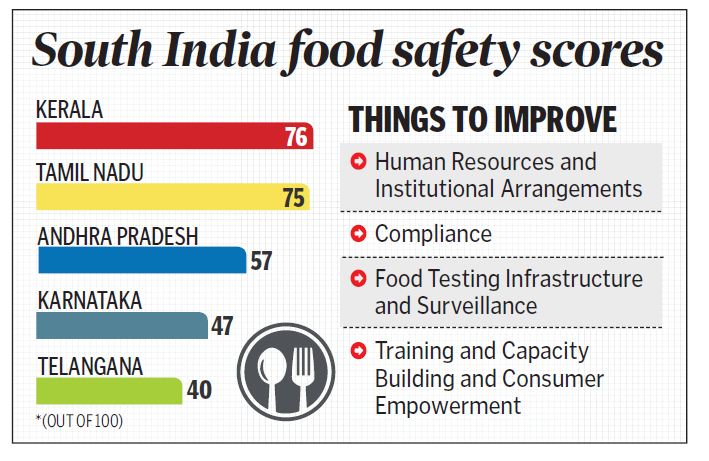Chennai: Though Tamil Nadu stood second in the country in checking food samples and filing cases for adulteration, its follow-through in the crackdown is not as impressive. Less than 13% of the food adulterators in the state were convicted last year, despite an increase in complaints of food contamination from the public.
Of the 2,384 cases filed over food safety issues in 2018-19, only 300 ended in conviction, shows official data. It also shows that conviction rate for such cases has always been low in the state, except for in 2017-18, when major reforms were introduced by the food safety department.
Though Rs 5 crore was collected as fines from violators last year, consumer rights activists say the adulterators pay a paltry sum as fine individually.
Activist K Kathirmathiyon said though there are stringent provisions in the Food Safety and Standards Act, adulterations will continue unabated if violators are not punished. “A case is filed only after samples are found adulterated/ misbranded in labs. After that, if an official is unable to get the adulterator convicted, the official should be pulled up and asked to explain why the case didn’t end with conviction,” he said.
When contacted, Tamil Nadu food safety department officials said conviction rate depends largely on the number of samples collected and said they aren’t able to collect as many samples since more than 50% of technical posts are vacant.
A senior official attributed the spike in conviction rate in 2017-2018 to major reforms introduced then. Until 2017, the Food Business Operators (FBOs), field-level officers who collect samples from food outlets, collected only one sample per block. It was increased to nine per block last year.
The official, however, said the figures presented in the Lok Sabha on Tuesday were exaggerated since they are collecting as many samples as possible and a sudden decline in conviction rate was not possible. Data also suggests that many cases are still pending trial. While criminal cases (adulteration) are heard at the district and judicial magistrate (JM) courts, civil cases (misbranding/ mislabelling/ substandard quality) are inquired by the revenue department.




